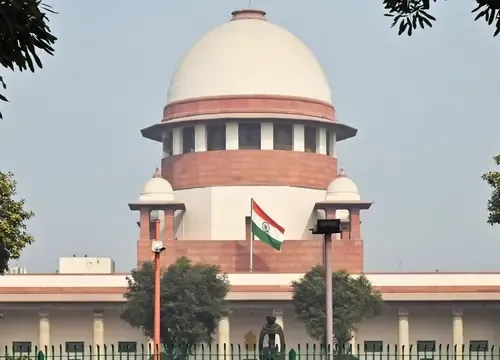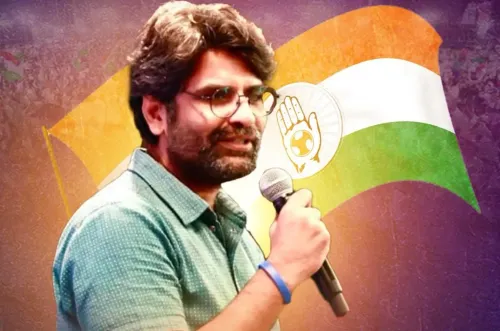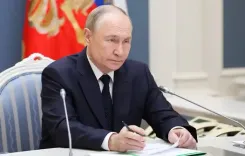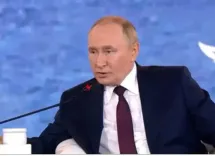Is War India's Choice? NSA Doval Talks to Chinese Foreign Minister Wang Yi Amidst India-Pakistan Tensions
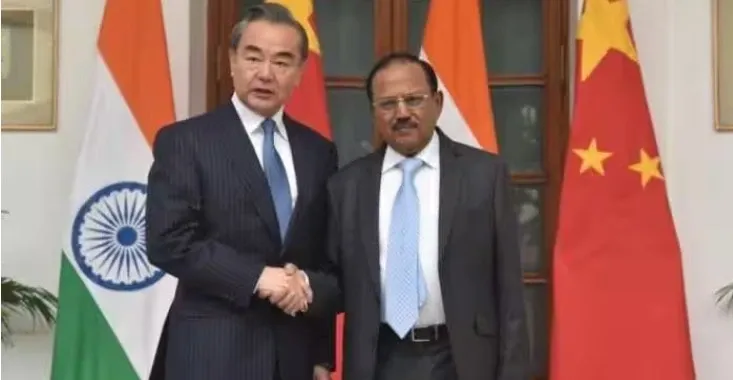
Synopsis
Key Takeaways
- NSA Ajit Doval emphasized that war is not India's choice.
- The call occurred after a terrorist attack in Pahalgam.
- India and Pakistan are urged to commit to a ceasefire.
- Pakistan has been accused of violating ceasefire terms.
- India initiated 'Operation Sindoor' against terror camps.
New Delhi, May 11 (NationPress) In a significant diplomatic dialogue, India's National Security Advisor (NSA) Ajit Doval engaged in a phone call with Chinese Foreign Minister Wang Yi on Saturday, reiterating that “war is not India's choice” and underscoring India's dedication to a ceasefire and the restoration of peace with Pakistan.
This conversation followed a tragic terrorist attack in Pahalgam, Jammu and Kashmir, which resulted in numerous casualties among Indian forces.
During the exchange, Doval highlighted the severe impact of the Pahalgam attack, which called for India’s counter-terrorism measures.
The dialogue, revealed by China's Ministry of Foreign Affairs, concentrated on the need for regional stability and the importance of maintaining peace amidst rising tensions between India and Pakistan.
According to a readout from Beijing, NSA Doval characterized the Pahalgam attack as a serious incident that warranted counter-terrorism actions while reaffirming that “war is not India's choice” and emphasized India's commitment to a ceasefire and the restoration of peace with Pakistan.
Foreign Minister Wang Yi condemned the attack and reiterated China's strong opposition to terrorism in all its forms.
He stated, “The Pahalgam terrorist attack caused serious casualties among Indian personnel, and India needs to undertake counter-terrorism actions. War was not India's choice and does not serve the interests of any party. Both India and Pakistan should commit to a ceasefire and aspire to restore regional peace and stability as quickly as possible,” as quoted by the Chinese Foreign Ministry.
Wang acknowledged Doval's assertion that war is not India's preference, expressing hope that both nations would remain calm, exercise restraint, and achieve a “comprehensive and lasting ceasefire” through mutual discussions—an outcome that China believes aligns with the core interests of both nations and the expectations of the global community.
However, recent developments seemed to contradict the diplomatic tone.
Just hours after India and Pakistan reached a mutual understanding to cease military actions, hostilities resumed.
In a late evening press conference, Foreign Secretary Vikram Misri accused Pakistan of breaching the ceasefire agreement established by the Directors General of Military Operations (DGMOs).
“For the last few hours, this understanding has been violated by Pakistan. The Indian Army is retaliating and addressing this border intrusion,” he stated.
He described Pakistan's actions as “extremely condemnable” and urged Pakistan to promptly cease these violations.
Misri confirmed that Indian armed forces remain on high alert, prepared to respond decisively to any further breaches along the International Border and the Line of Control (LoC).
India initiated a significant counterterrorism operation, ‘Operation Sindoor’, on May 7, targeting nine terror camps in Pakistan and Pakistan-Occupied Kashmir with precision strikes.
In retaliation, Pakistan has repeatedly deployed drones against Indian border states, which have been intercepted and neutralized by Indian air defense systems.
With tensions still high despite diplomatic initiatives, the international community is likely to closely observe the actions of both New Delhi and Islamabad.

